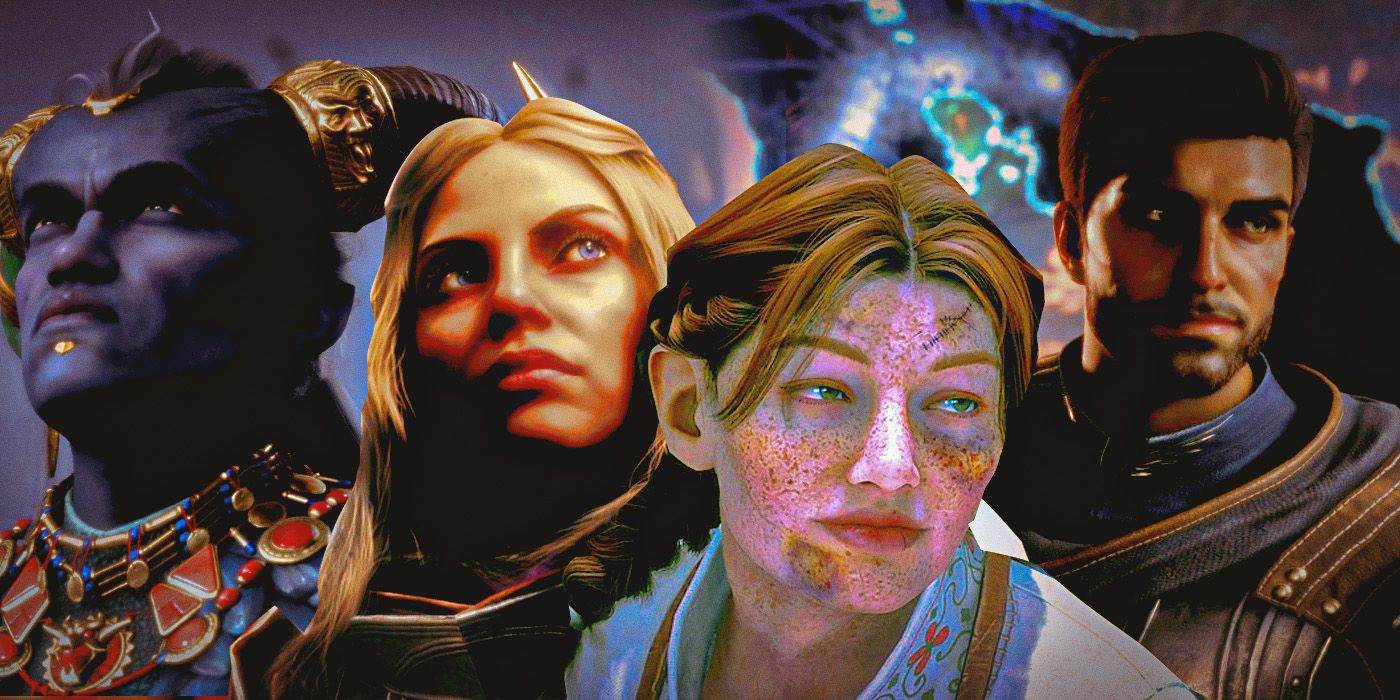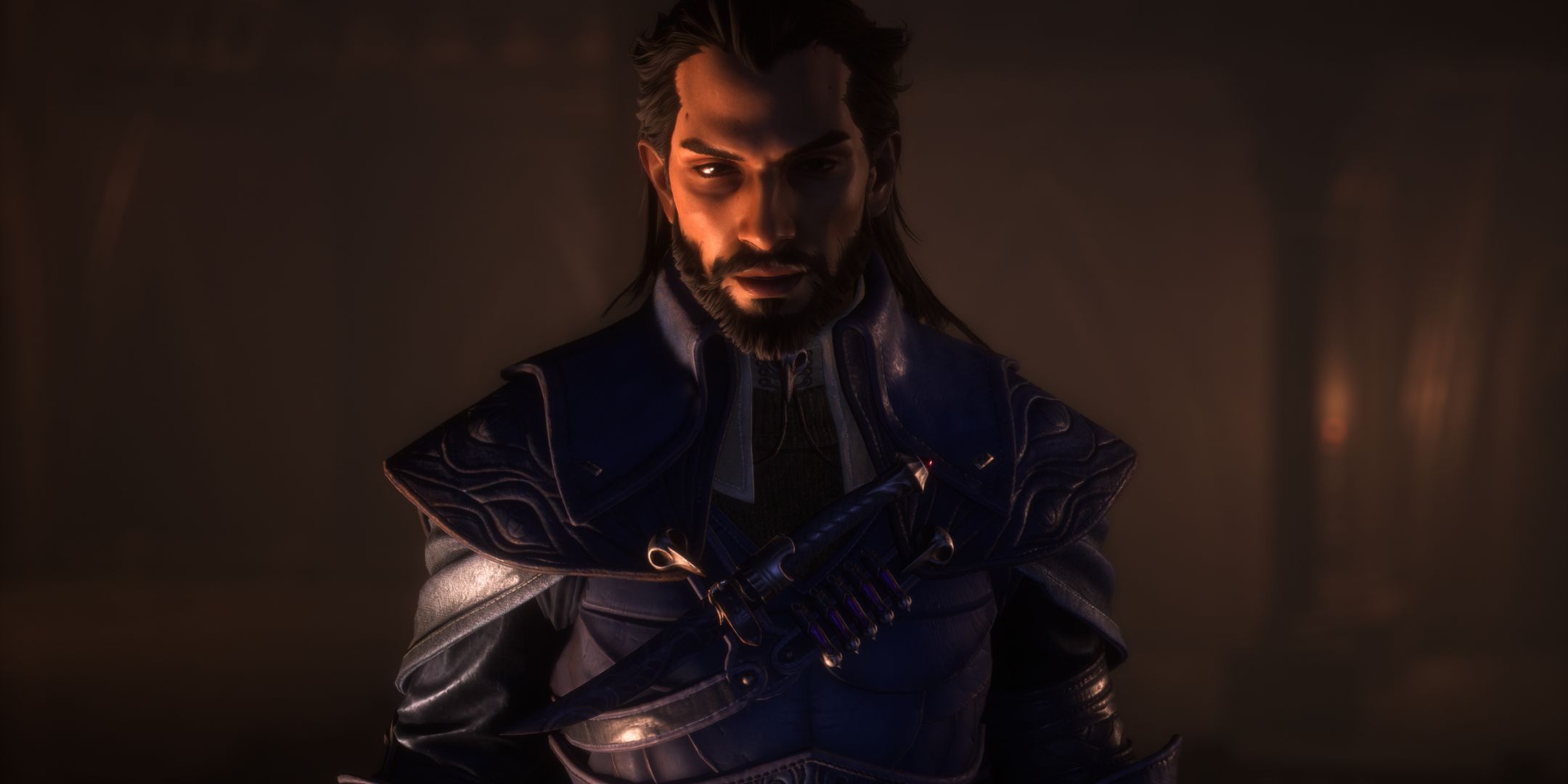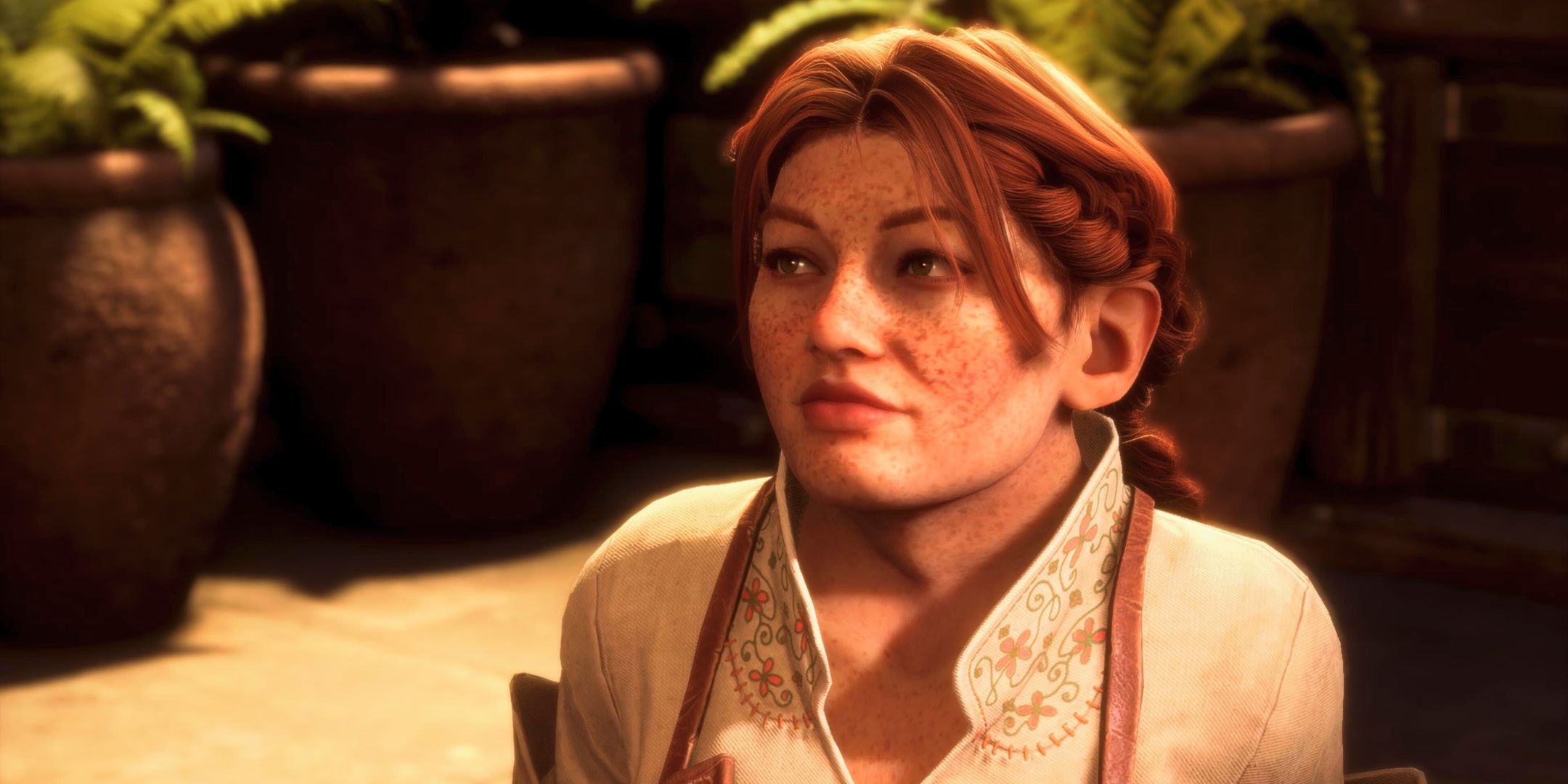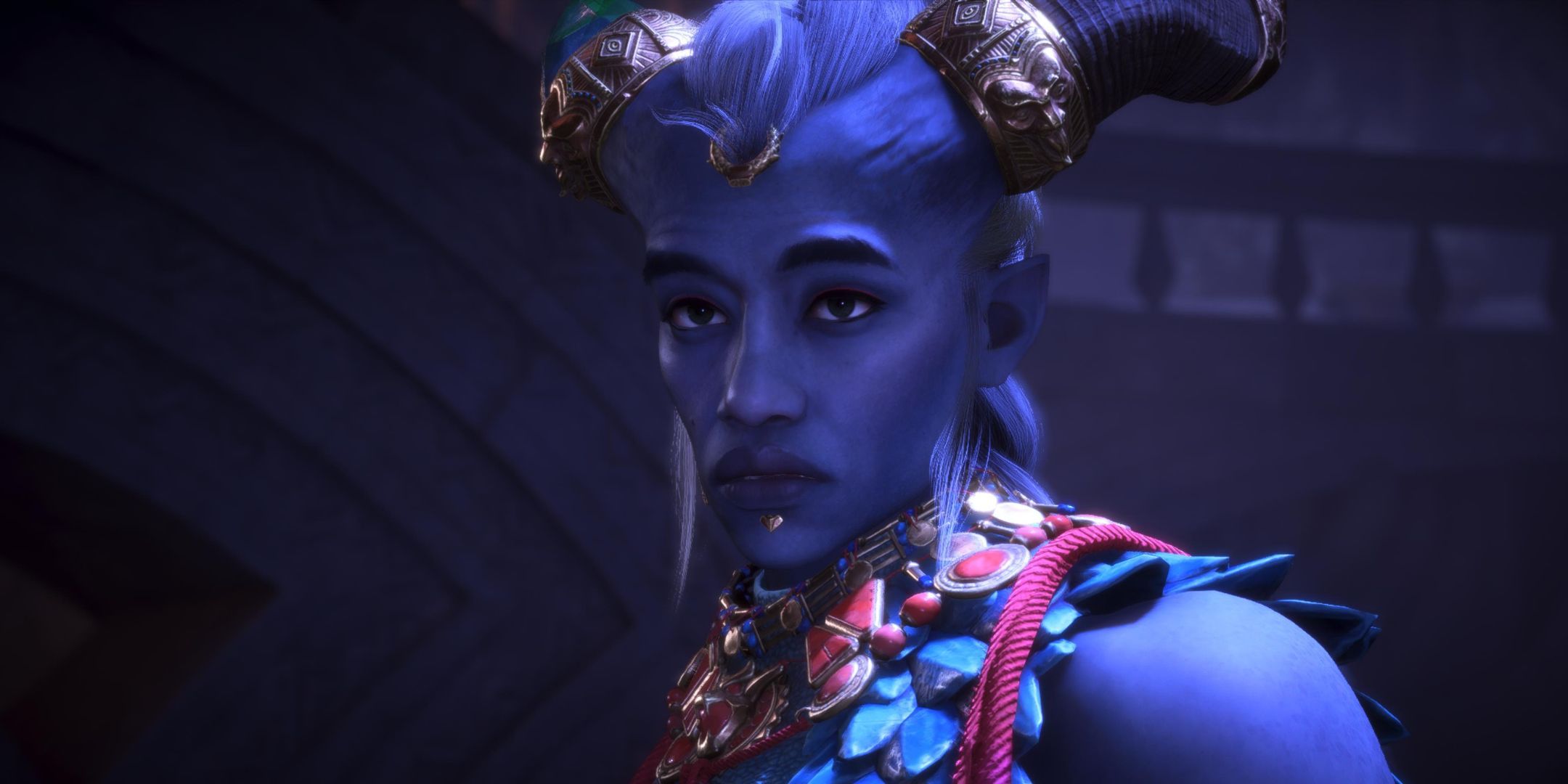
There are four playable races in Dragon Age: The Veil Guardeach of which has a profound effect on the game. Continuing the four races of Inquisition, the options available in The Veil Guard are humans, dwarves, elves and Qunari. They are called bloodlines in the game and are chosen permanently at character creation - although the player has the opportunity to change their character's general appearance later, their bloodline is fixed from the start and can never be changed.
That being said, It's important to enter The Veil Guard with some knowledge of the culture of each lineage. The way each race moves through the world and how its members are viewed by the rest of society are deeply tied to the main story. Here's everything players need to know about choosing a race in Dragon Age: The Veil Guardand how it affects class, dialogue, and skills.
Dragon Age: The Veilguard Human Race Explained
The DA's youngest race
In Dragon Agehumans are just that: members of the same species as each player. According to tradition, humans are described as a relatively young racepreceded by the existence of dwarves and elves. The original humans are believed to have originated from Par Vollen, also the homeland of the Qunari, who migrated south to Thedas a few thousand years ago. These humans eventually split into four different kingdoms, three of which eventually united to form the powerful Tevinter Empire, while the fourth, Barindur, was mysteriously lost.
The first humans of Tevinter worshiped the Old Gods, a pantheon of dragons who were believed to have passed on their knowledge of magic to the first wizards. However, its invasion by a barbarian army from the south brought the teachings of Andraste, prophet of the Creator, to humanity. Andrastianism soon became the predominant religion among humanswith its world leaders, the Orlesian Chapel, becoming one of the most powerful factions in Thedas.
Although most of them share the same religion, humans are widespread and relatively culturally diverseat least compared to the other playable bloodlines. Many follow other religions or consider themselves members of the kingdoms into which they were born or the faction to which they pledge allegiance, rather than members of the human race in general. This has led to some conflicts between humans in different parts of the world.
As a result, some non-humans look down on humans in a paternal waybelieving them to be ignorant or uneducated due to the relative youth of their society and differences in their religion. Elves may distrust humans due to their slavery at the hands of the Tevinter Empire. This may affect certain interactions with companions and NPCs.
Humans are, however, one of the most numerous lineages in Thedas. Their generalized nature can also provide a service to humans, as they may be able to find instant points of similarity with other humans based on their knowledge of Andrastianism and human culture in general. Aside from occasional human-specific dialogue, though, choosing a human has little effect on gameplay. Humans can play any of the three available classes, and bloodline does not influence stats or abilities.
Elves are central to Veilguard's story
The Veilguard elf race
In appearance, Dragon AgeElves are very typical of the fantasy genre; in every other respect they are anything but. For one thing, elves only live as long as humans, and are not thousand-year-old ethereal beings languishing in boredom. Elves are actually subject to widespread oppression in the world of Thedasmost of which reaches human hands.
The elves have already brought much of the continent under their control with the advent of the Elvhenan empire. They wielded powerful magic and worshiped their own leaders, the Evanuris, many of whom claimed divinity. Greedy and power-hungry, the Evanuris sought greater power underground, in the kingdom of the dwarves. But what they finally found was so terrible that they sealed him away. This sparked a rebellion, led by the trickster god Fen'Harel (also known as Solas), who believed that The false gods' hunger for power would one day lead to disasterand created the Veil to trap the Evanuri within the Fade.
When humans first appeared in Thedas, they established a peaceful trading relationship with the elves, but this was destroyed when the Tevinter Empire sacked the elven capital of Arlathan. The elven empire was destroyed. Many elves were (and still are) enslaved by humans, and the elf Rooks will undoubtedly encounter human prejudice as they travel the world. Eventually, the elves split into two factions: the assimilated city elves and the Dalish, who try to keep ancient elven traditions and culture alive.
Much of this context is vital to the story of Dragon Age: The Veil Guardwhat it means elves will have an intimate and cultural connection to your events. This means that elves are an excellent bloodline choice for roleplayers; there are many ways to fit them into this world and develop a unique perspective on elven history. Again, all three playable classes are available for elven charactersand choosing to play as an elf has little effect on gameplay beyond changes to dialogue.
Dwarves have special restrictions
Dwarves cannot use magic in DA
Dragon Age dwarves are a little more typical by fantasy standards. They are short and stout and have historically been associated with great underground societies and technological prowess. The dwarves represent the front line of the fight against the darkspawn, humanoid creatures infected with a deadly taint that transforms them into bloodthirsty and irrational monsters. Although hardy and industrious dwarves have survived for millennia, they are facing a population crisis at the time of Dragon Age: The Veil Guardas continued exposure to the Taint has rendered many of them infertile.
Dwarves are of uncertain origin, but are known to be one of the oldest races in Thedas, responsible for the invention of its currency, trade and lingua franca. Their once-great empire comprised much of the subterranean areas of Thedas, but the darkspawn managed to diminish their power by isolating their disparate kingdoms. An increasing number of dwarves have also come to live on the surface due to the ongoing war. The dwarves have always had positive relationships with humans and elves, although many of them were forced to flee when the Tevinter conquest of Arlathan began.
Dwarf society is governed by a rigid and complicated caste systempresided over by rich and powerful nobles. The wealth of the dwarven nobility comes primarily from the sale of lyrium, a crystalline substance that allows users to communicate with spirits beyond the Veil, with wizards on the surface. This caste system can manifest itself in dialogue throughout the world. The Veil Guard; nobles may look down on dwarves who choose to go to the surface.
In addition to the usual dialogue changes, playing as a dwarf has a significant impact on gameplay: dwarves cannot use magic in the world of Dragon Age. This is because they do not dream and therefore do not enter the Fade from which most magical abilities are drawn. (Dwarves can technically enter the Fade if they find an entrance, but they have no innate ability to create one.) As a result, dwarves can only play as warriors or rogues, and can never choose to be wizards.
Qunari are the most distinct lineage of AD
Who are the Qunari in the Guard of the Veil
Eagle-eyed readers may have noticed that Qunari are the only race whose name is capitalized throughout this article. This is not an error, as Qunari is not technically the name of Dragon Agethe tall, muscular, horned lineage; rather, it refers to their religionQun. Technically, characters of any race can become Qunari if they accept the teachings of Qun. The race with which Qun is most closely associated is actually called the kossith, but as they are generally called Qunari both inside and outside the Dragon Age configuration, that's what they are called here.
Like the humans, the Qunari are said to have begun their empire in Par Vollen, taking control of that peninsula, then coming south to conquer Seheron and much of Rivain, and finally advancing further into Tevinter. This led to the Qunari warsa series of conflicts between human-led factions and the invading Qunari. Eventually, humans managed to recapture much of their territory on the continent. Many Qunari remained living in Tevinter, but were largely seen as outsiders; as a result, Qunari characters may encounter some resistance from prejudiced humans.
The Qun religion guides much of Qunari societyestablishing not only their political philosophy and spiritual beliefs, but also the order of their society and culture. Qun asserts that everything in the world has a predetermined nature; individual choice simply comes down to whether one wants to live according to one's assigned nature or fight against it and upset the balance of the world. As such, the Qunari live collectively, and every person, place and thing has value to them as long as they act in accordance with their destiny. This makes the Qunari strange especially in Andrastinian Thedas.
The Qunari believe in the superiority of their philosophy and that its triumph over all other ideologies is also inevitable. As a result, they proselytize wherever and whenever they can, but they rarely resort to violence or coercion. On the contrary, the inevitability of Qun's triumph means that the Qunari are typically kind, patient, and understanding toward their neighbors. However, they are not so kind to apostates from the faithwhom they call Tal-Vashot. Tal-Vashoth is shunned and exiled by the greater Qunari society on the grounds that it fails to provide a framework for the existence of adherents outside of Qun.
These are the basics about all four Dragon Age races and should provide a solid foundation to help players choose a bloodline for their characters. The rest, players are free to discover as they explore the world of Dragon Age: The Veil Guard.


